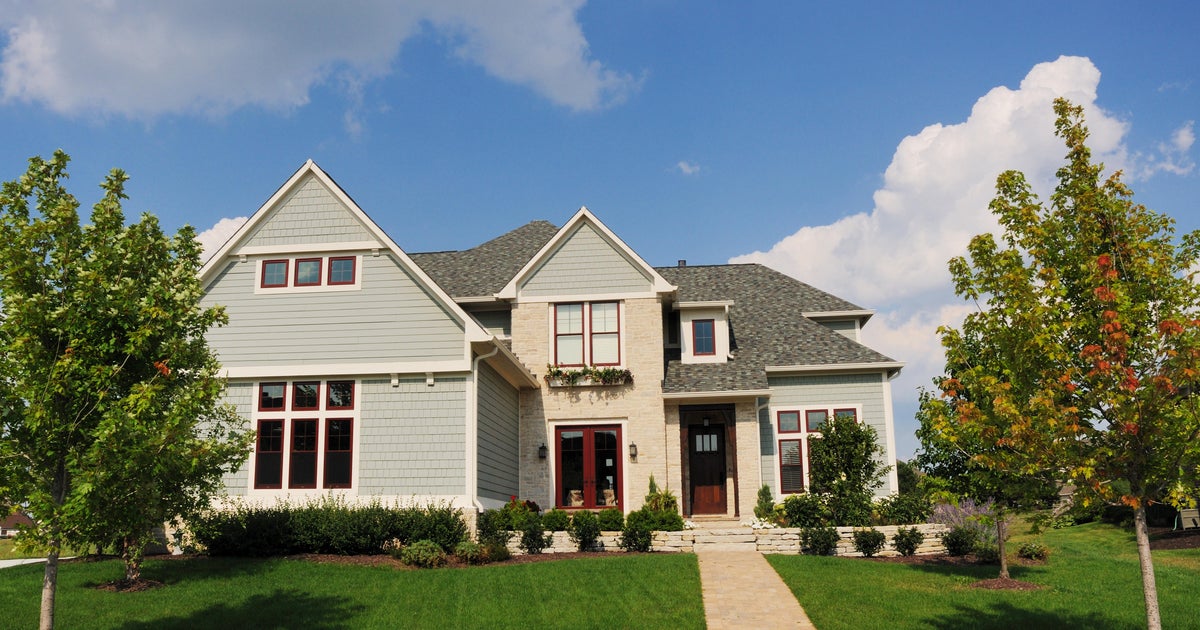5 home price scenarios that could occur in 2025
Monthly mortgage payments hit record highs in 2024, putting homeownership out of reach for many Americans. Inventory shortages and steady demand kept increasing home prices, even as mortgage rates fluctuated between 6% and 7%.
The Federal Reserve's recent moves have caught buyers' attention, with two rate cuts and hints of more ahead. But with so few homes available to buy, no one is certain how prices will respond.
What could happen to home values in 2025? Real estate experts see several possible paths. Below, we'll break down what could unfold — and what you can do to prepare if you're in the market to buy a home next year.
Start by seeing what mortgage interest rate you could qualify for here.
5 home price scenarios that could occur in 2025
The housing professionals we consulted forecast modest growth in home prices next year.
"Limited inventory combined with sustained buyer demand — particularly in [sought-after] neighborhoods — will continue to drive upward pressure on prices," explains Jason Mudd, managing partner at Cindy Raney & Team, a luxury real estate advisory group.
Yoann Dorat, a luxury real estate agent at One Sotheby's International Realty adds that in luxury markets, "demand will remain strong due to the area's appeal to affluent buyers."
The market may take different directions, though — such as steady increases in some regions and potential corrections in others. Below, we'll look at five possible scenarios in the coming months.
Scenario 1: Modest price growth
Kevin Ryan, chief financial officer at Better.com, says a strong job market combined with millennial and Gen Z buyers would keep prices up, especially where housing is scarce. Location will also be critical in this scenario. "Buyers should expect steady prices in desirable areas where the luxury market continues to see [high] demand," emphasizes Dorat.
Review your current mortgage options online today.
Scenario 2: Price stabilization
If more homeowners decide to sell in 2025, the cost of a home could level off instead of continuing to rise. "Price stabilization would require a balance between supply and demand, achieved through modest increases in inventory and steady buyer activity," explains Ryan.
This scenario depends heavily on interest rates. Lower rates may encourage more sellers to list their homes while maintaining consistent buyer demand. The result is a more balanced market where neither side has the upper hand.
Scenario 3: Regional price corrections
Some housing markets could see price drops while others remain strong in 2025. "Regional price corrections would occur due to local economic disparities, such as job market downturns or industry-specific challenges," Ryan says.
These corrections might hit overbuilt areas or places losing residents to other regions. When people move away from expensive cities, local prices often fall. The same can happen in areas where builders have added too many new homes, even as other markets stay stable.
Scenario 4: Significant price declines
A widespread drop in home prices could happen if the economy takes a sharp turn for the worse. "Significant declines would result from rapid interest rate hikes, a severe recession and rising unemployment," Ryan points out.
While this scenario is less likely, it could hit some markets harder than others. "Lower buyer demand, compounded by higher interest rates, could lead to price reductions in markets that had high price appreciation," cautions Dorat. A surge in distressed property sales could push prices down even further.
Scenario 5: Market segmentation
You may see different price trends depending on the type of home you're buying in 2025. According to Dorat, luxury homes will likely get pricier as wealthy buyers seek stable investments. But first-time buyers might catch a break. Entry-level home prices could decline if high interest rates continue limiting buying power.
The bottom line
While it's tough to predict where home prices will go next year, you can prepare to act when the time is right. Start by improving your credit score (if necessary), getting pre-approved for a home loan and speaking with lenders to understand your budget.
"New homebuyers should have a strategy that includes [a mortgage refinance] when rates decline," Ryan advises. This way, you can buy when you find the perfect home — and lower your monthly payments and interest costs if and when rates drop.




